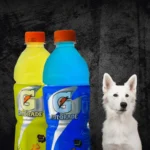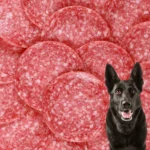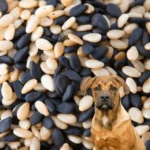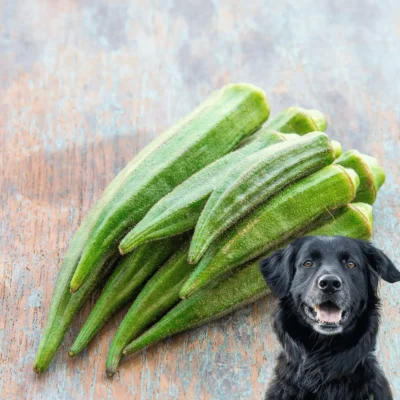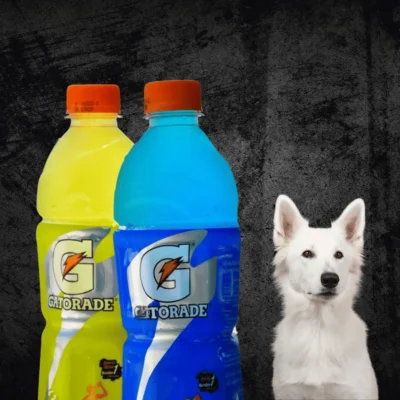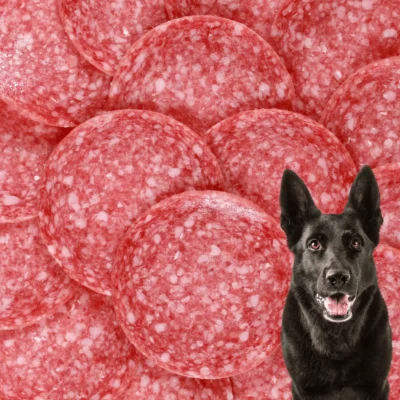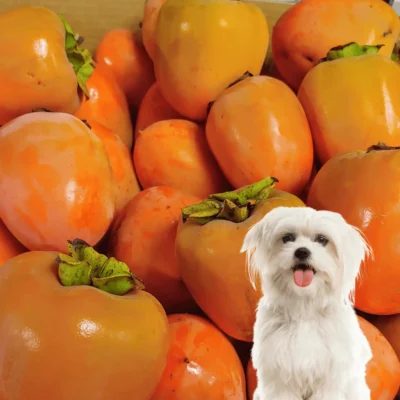Dogs, like children, love to explore and taste everything they can get their little paws on, leaving pet parents curious about which human foods are safe for their furry friends. Twizzlers are a favourite candy between both kids and adults, but can dogs eat Twizzlers? Is it okay for dogs to eat Twizzlers? The answer is; unluckily, it’s not great for them. Join us as we’ll tell you everything you need to know about the compatibility of Twizzlers with your Canine companion.
In this blog post, we will explore whether dogs can eat Twizzlers. We’ll delve into the safety of Twizzlers for dogs, potential risks, and what to do if dogs consume Twizzlers. Additionally, we’ll discuss how much Twizzler dogs can safely eat.
Here are the topics we’re going to discuss in this article:
- What are Twizzlers?
- Ingredients in Twizzlers
- Can dogs eat Twizzlers?
- Can dogs eat black licorice Twizzlers?
- Is it ok for dogs to eat red licorice?
- Are Twizzlers safe for dogs?
- Possible health risks of dogs eating Twizzlers
- How many Twizzlers can dogs eat?
What are Twizzlers?

Twizzlers are a popular candy known for their chewy, tube-shaped licorice. Vibrantly coloured and bursting with flavour, they have become a favourite treat for children and adults. These chewy twists come in various flavours, including strawberry, cherry, grape, and watermelon.
The Hershey Company manufactures Twizzlers which are a widely recognized and enjoyed treat in many parts of the world.
This licorice-flavoured candy may be delicious and tempting for any dog, but your canine companion needs to avoid them. These sweet treats lack the nutritional value that dogs need and can make them sick if consumed in large amounts.
Ingredients in Twizzlers:

The classic strawberry Twizzlers contain ingredients such as:
- Corn syrup
- Wheat flour
- Sugar
- Cornstarch
- Palm oil
- Salt
- Artificial flavour
- Citric acid
- Potassium sorbate (preservative)
- Red 40
- Soy lecithin
These components are not suitable for our furry friends, emphasizing the importance of avoiding such treats to ensure their psychological and overall health.
Can Dogs Eat Twizzlers?

Yes, dogs can eat Twizzlers in small amounts. You can only offer this treat to them occasionally. It’s crucial to keep it infrequent, considering the potential risks associated with the ingredients.
If your furry friend has consumed a single piece of Twizzlers, there might not be immediate cause for concern. However, if your pup seems a bit off after eating too many Twizzlers, observing them closely for any adverse reaction is advisable.
Can Dogs Eat Black Licorice Twizzlers?
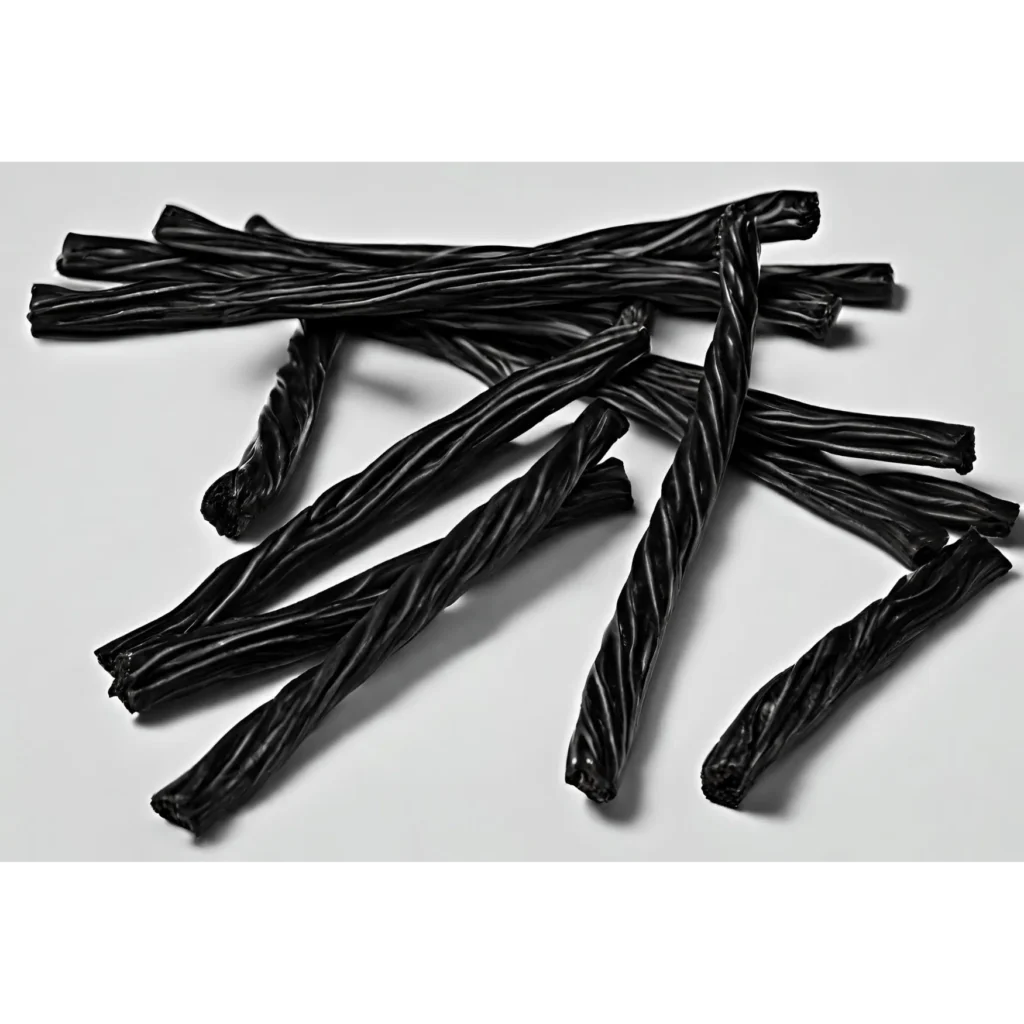
Black Licorice Twizzlers contain licorice extract, which can be toxic to dogs in large quantities. This is due to a compound called glycyrrhizin, which can cause problems like increased blood pressure, muscle weakness, electrolyte imbalances, heart problems, and kidney failure.
If you suspect your dog has eaten black licorice Twizzlers, contact your veterinarian immediately.
Is It OK for Dogs to Eat Red Licorice?
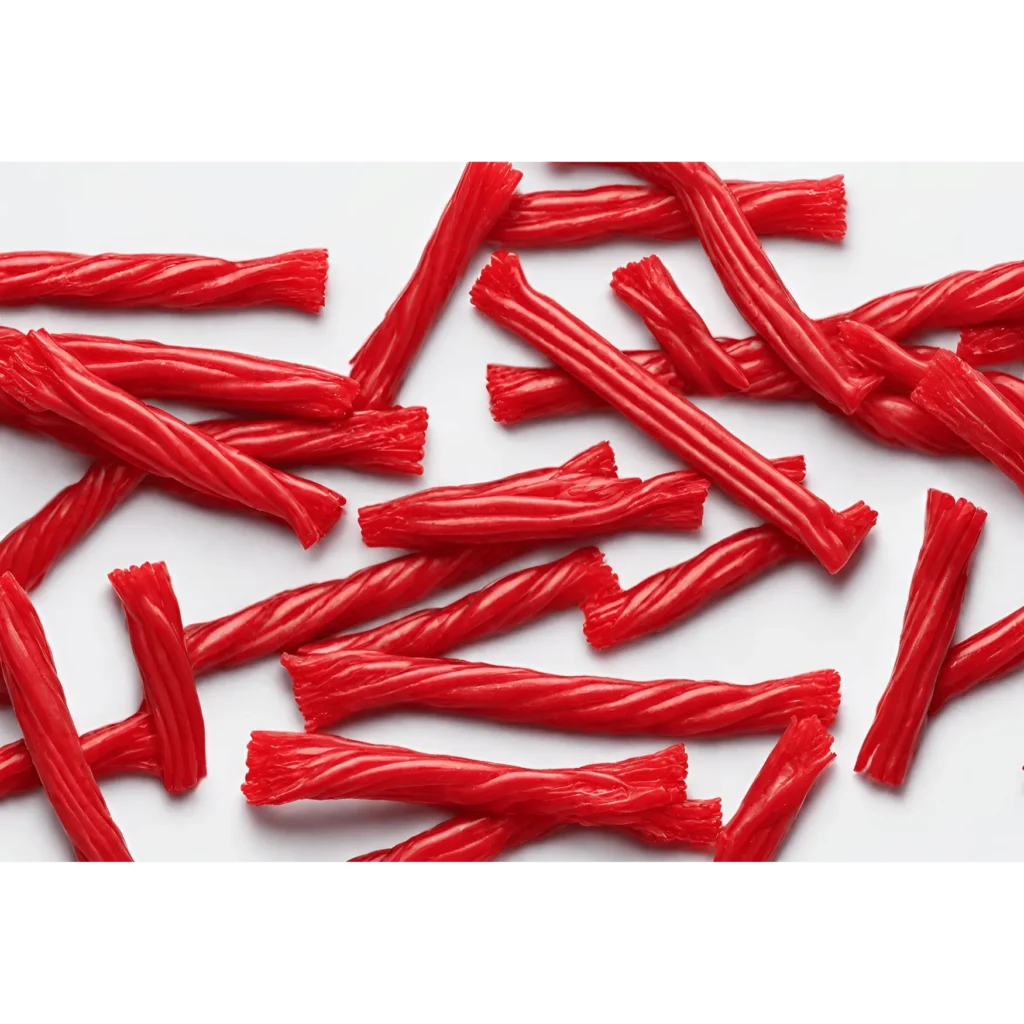
yes, dogs can eat red licorice in moderation. It doesn’t contain the same high levels of glycyrrhizin found in black licorice, which is toxic to dogs, it’s still not the best treat for your furry friend.
Red candy ropes are primarily made of sugar, which can be harmful to dogs. It can cause diabetes, dental problems, obesity, liver disease, blood sugar dips, and even death in the most challenging situations.
Are Twizzlers Safe for Dogs:

Twizzlers are not considered safe for dogs. These candies typically contain ingredients like sugar, artificial colours, and preservatives that can be harmful to dogs. Additionally, some Twizzlers or licorice products may contain xylitol, a sugar substitute that is highly toxic to dogs.
Feeding candy ropes to dogs can lead to various health issues, including digestive problems, obesity, and, in the case of xylitol ingestion, serious complications such as hypoglycemia and liver failure.
To ensure your dog’s safety, it’s best to avoid giving them Twizzlers or any other candy designed for human consumption. Stick to treats specifically formulated for dogs and consult with your veterinarian if you have any concerns about your pet’s diet or if you suspect they have ingested something harmful.
Possible Health Risks of Dogs Eating Twizzlers:

While Twizzlers may seem like a harmless treat to share with your furry friend, they pose several potential health peril. Here’s a breakdown of the dangers:
High Sugar Content and Obesity:
One of the primary concerns associated with Twizzlers is their high sugar content, which can contribute to obesity in dogs. Dogs have limited ability to process and metabolize sugar, and excessive consumption may lead to various health issues.
Increased sugar intake can contribute to weight gain, triggering a cascade of problems such as diabetes, joint issues, and heart disease. Moreover, sugar promotes the growth of bacteria in a dog’s mouth, potentially resulting in tooth decay and gum disease.
Additionally, an excess of sugar can upset a dog’s stomach, causing symptoms like vomiting, diarrhea, and bloating. It’s crucial to be mindful of these risks and prioritize your dog’s health by avoiding treats with high sugar content.
Xylitol Toxicity:
Xylitol is a sugar alcohol commonly used as a sweetener in sugar-free products, medications, and even some personal care items. While safe for humans, it is highly toxic to dogs, even in small amounts. Ingestion can lead to a rapid drop in blood sugar, causing a cascade of potentially life-threatening complications; such as seizures, liver failure, and Death.
Unlike humans, dogs lack the enzyme needed to properly process xylitol. As a result, the sugar alcohol enters the bloodstream quickly, causing the pancreas to release a massive amount of insulin. This sudden surge in insulin leads to a dramatic drop in blood sugar levels, known as hypoglycemia.
Choking Hazard:
The chewy and elastic texture of Twizzlers poses a potential choking hazard for dogs. Dogs may struggle to break down or properly chew these treats, increasing the risk of large pieces getting stuck in their throat. This can lead to choking and pose a serious threat to their airway.
To ensure the safety of your dog, it’s crucial to avoid offering treats with a high choking risk. There are many dog-safe treats available that are less likely to pose a choking hazard. Fruits, vegetables, and commercially made dog treats are all good options.
Artificial Colours and Allergies:
Twizzlers do contain artificial colours, including Red 40, Yellow 5, and Blue 1 which may pose a risk of allergies for dogs. Dogs can be sensitive to certain artificial additives, leading to allergic reactions. Symptoms may include itching, skin irritation, digestive upset, or respiratory issues.
It’s essential to be aware of potential allergic reactions and monitor your dog closely after consuming such treats. If you observe any adverse reactions, consult with your veterinarian for guidance.
How Much Twizzlers Can Dogs Eat?

Dogs should not be given Twizzlers or similar candies, as these treats are not suitable for their health. Twizzlers contain ingredients like sugar, artificial colours, and potentially harmful additives that can lead to various health issues in dogs, including obesity, digestive problems, and even toxicity.
If your dog consumes Twizzlers, it’s advisable to withhold all food for some time and closely monitor them. Excessive intake of Twizzlers can be very harmful, potentially resulting in medical problems.
Prioritizing your dog’s well-being is essential, so opt for treats specifically designed for canine consumption. If you’re in search of safe and enjoyable treats for your dog, consider options such as dog-friendly biscuits, dental chews, or fresh fruits and vegetables. Always consult with your veterinarian for guidance on a healthy and balanced diet for your furry friend.
Conclusion:
In conclusion, while dogs can technically eat Twizzlers in small amounts, it’s not recommended due to the potential risks associated with the ingredients. Twizzlers, with their high sugar content, artificial colours, and possible inclusion of xylitol, pose various health hazards for dogs.
The high sugar content in candy twists can contribute to obesity, diabetes, and dental problems in dogs. Xylitol, if present, is extremely toxic to dogs and can lead to serious complications, including seizures and liver failure. The chewy texture of Twizzlers also presents a choking hazard, and the artificial colours may trigger allergic reactions in sensitive dogs.
To categorize your dog’s health and safety, it’s best to avoid giving them Twizzlers or any other candies designed for human consumption. Instead, provide treats specifically formulated for dogs, such as dog-friendly biscuits, dental chews, or fresh fruits and vegetables. Always consult with a veterinarian to ensure the diet aligns with the specific nutritional needs of the individual dog.
FAQs:
Can dogs eat Twizzlers?
Dogs can technically eat Twizzlers in small amounts, but it’s not recommended due to potential health risks associated with the high sugar content, artificial colours, and potential inclusion of harmful additives.
What makes black licorice Twizzlers dangerous for dogs?
Black licorice Twizzlers contain licorice extract, which can be toxic to dogs due to a compound called glycyrrhizin. This can lead to issues like increased blood pressure, muscle weakness, and kidney failure.
Is red licorice safe for dogs?
Red licorice is considered safer than black licorice, but it still contains high sugar levels, which can contribute to health issues in dogs, such as obesity, dental problems, and blood sugar imbalances.
What should I do if my dog eats Twizzlers?
If your dog consumes Twizzlers, monitor them closely for any adverse reactions. If there are signs of distress or if you suspect they’ve ingested a significant amount, contact your veterinarian immediately.
What are safer alternatives to Twizzlers for dogs?
Provide treats specifically formulated for dogs, such as dog-friendly biscuits, dental chews, or fresh fruits and vegetables. These alternatives are healthier and better suited to meet your dog’s nutritional needs.
What are the potential risks of dogs eating Twizzlers?
Risks include high sugar content leading to obesity and dental issues, potential xylitol toxicity, choking hazards due to the chewy texture, and allergic reactions to artificial colors.
Are all Twizzler flavors equally unsafe for dogs?
While some flavors may be slightly safer than others, all Twizzler varieties should be avoided due to common ingredients that can be harmful to dogs.

